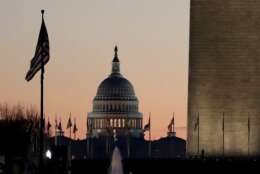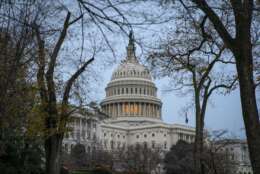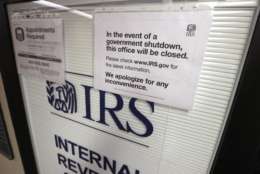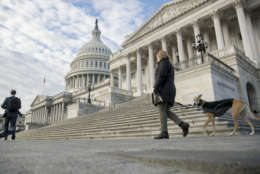Unions
-
HHS committed a “clear and patent violation” of its 2010 collective bargaining agreement with NTEU, according to an independent arbitrator.
January 02, 2020 -
Credibility with the public originates with employees trusting one another.
January 02, 2020 -
Several recent court decisions involving the appointments clause and the structure of quasi-judicial boards may have big consequences for administrative judges and other board members at the Merit Systems Protection Board, Federal Service Impasses Panel and other federal agencies.
December 30, 2019 -
With little time to spare before the deadline, President Donald Trump signed two shutdown-averting spending bills into law and a 3.1% federal pay raise. He also signed the annual defense authorization bill, which includes a new paid parental leave program for most federal employees.
December 20, 2019 -
The 2020 spending bills urge the Social Security Administration to reinstate its telework program for operations employees, but they're silent on collective bargaining protections and funding for the Bureau of Land Management's upcoming relocation.
December 18, 2019 -
The House has sent "minibus" spending bills, which include a 3.1% federal pay raise, to the Senate for its consideration. Congress must pass and the president must sign both bills into law by Friday to avoid a second government shutdown this year.
December 17, 2019 -
A 3.1% federal pay raise is a key feature of one of two "minibus" spending bills, which congressional appropriators unveiled Monday evening. Both the House and Senate are expected to quickly vote on both this week before Friday's funding deadline.
December 16, 2019 -
If there’s a government shutdown next year, in late 2020, will air traffic controllers on paid parental leave actually get paid?
December 16, 2019 -
In today's Federal Newscast, four out of five members of the National Treasury Employees Union say they're starting to worry about the impact of a potential government shutdown on their finances.
December 12, 2019 -
Federal employees will have up to 12 weeks of paid leave for the birth, adoption or foster of a new child starting in October 2020, if Congress passes and the president signs the annual defense policy bill into law.
December 10, 2019 -
Congress and the White House have struck a deal to include 12 weeks of paid parental leave for federal employees in the upcoming defense authorization bill. But the program would only grant parental leave, not paid time off to care for a sick family member, as originally envisioned by House Democrats.
December 09, 2019 -
For the second year in a row more than a million feds aren’t sure if they’ll be forced to come to work or be locked with or without pay over the holidays.
December 09, 2019 -
Amid pressure from lawmakers and a bad-faith ruling from the Federal Labor Relations Authority, the American Federation of Government Employees and Environmental Protection Agency have agreed to return to the bargaining table.
December 05, 2019 -
U.S. attorneys say a series of challenges from the National Treasury Employees Union on the last government shutdown should be dismissed because the union can't demonstrate their exact legal injuries could be repeated. The deadline to avoid another government shutdown is Dec. 20.
December 05, 2019 -
Six years after the 2013 government shutdown, attorneys have determined exactly how many federal employees are eligible for liquidated damages based on a class-action lawsuit, but it's still unclear how much they're owed.
December 04, 2019














